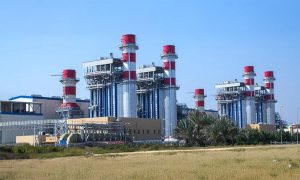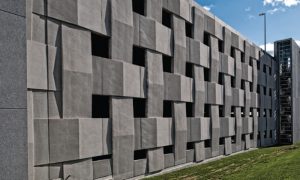Arabtec eyes outsourcing to reduce overheads
Third-party businesses and automation can have a significant impact, Hamish Tyrwhitt says

Arabtec Holding, the Dubai-based construction firm, plans to outsource a range of functions it currently carries out in-house, in a bid to further cut overheads, chief executive Hamish Tyrwhitt has said.
Speaking during an interview with Zawya, Tyrwhitt said that the business plan under preparation for next year would focus on productivity and efficiency.
“What do we mean by that? It’s focussing on our key markets, rightsizing the business, looking at what are the things we can outsource that traditionally we have done internally,” he explained during a telephone interview with the news portal.
He added that the construction giant had developed a range of internal functions over the years, which would allow it to do everything from processing visas and arranging travel, through to establishing its own labour accommodation camps and running catering for them.
“We’re a construction company. Our employees should be contractors. But a huge number of our people are providing services to us – and it’s not just us, it’s across the industry,” he said, pointing out that the company used to employ its own drivers to ferry packages, but now private sector courier services are widely available that are more effective and cost-efficient.
Tyrwhitt added that efficiencies can also be achieved through the automation of certain processes.
Arabtec reported a net profit attributable to shareholders of $4.8 million in the three months to September 30, compared to a $61.3 million loss in the same period last year. Revenue increased by 5.6% to $571.7 million, the report added.
In the nine-month period since the start of 2017, the company has made a net profit attributable to shareholders of $20.5 million, compared to a $124.7 million loss last year. Year-to-date revenue is 3.2% higher at $1.72 billion.
However, the company has used up $408.3 million in cash flow from operations so far this year, Tyrwhitt pointed out. This is equivalent to the amount raised via a rights issue that took place as part of a capital restructuring that was completed in June.
“That was always going to be the case,” Tyrwhitt stated, explaining that the purpose of the rights issue was to fund existing projects and the company’s future pipeline. “There was a lot of cash we owed out into the marketplace.”
He also pointed out that there was an increase in receivables – up to $1.39 billion, from $1.16 billion at the end of last year. He said that this was evidence that more work had been done.
“All of that shows a greater confidence in the company,” he argued. “People are awarding us work, but also we’re rebuilding and regaining the support of the supply chain.”
























